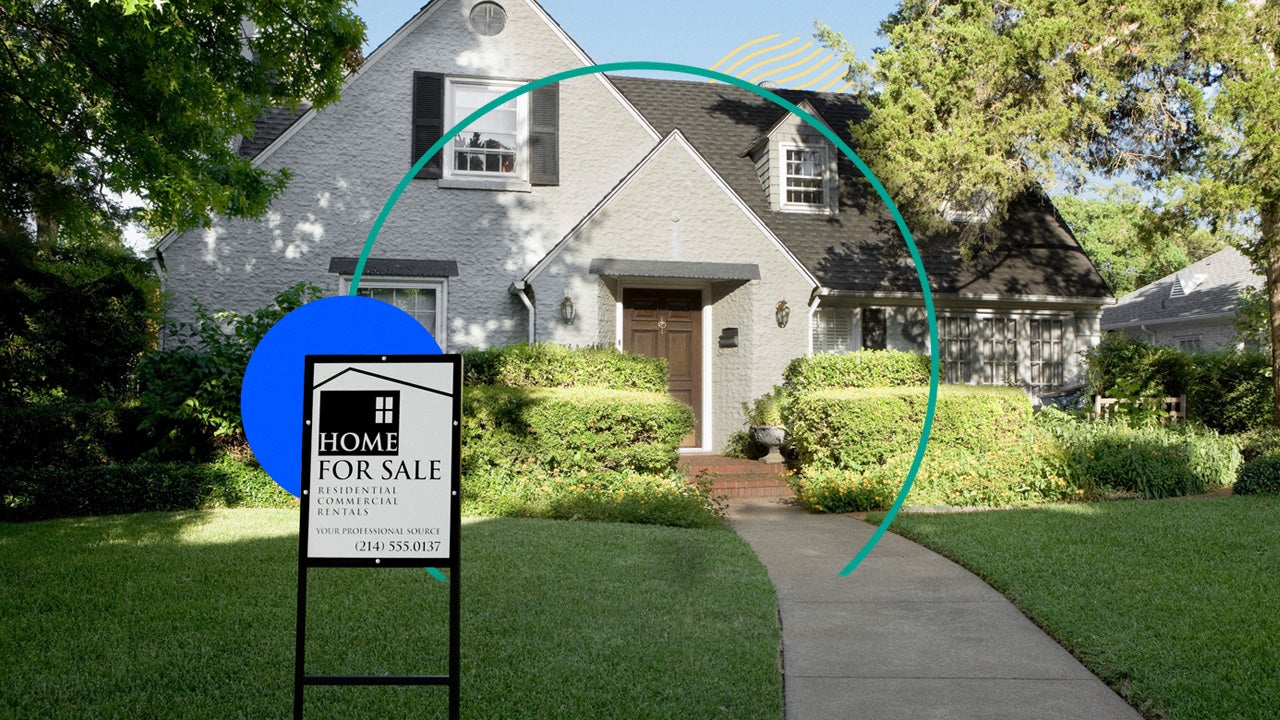The Ultimate Overview to Funding Options for a Real Estate Buyer in 2025
As you check out the real estate market in 2025, comprehending your financing options is essential. With a variety of choices-- from traditional home mortgages to innovative solutions like crowdfunding-- it's crucial to find what fits your requirements best. Each option comes with its very own set of benefits and factors to consider that can considerably impact your financial investment. What should you prioritize when reviewing these choices, and exactly how can they influence your journey to homeownership?
Understanding Traditional Mortgages
When it comes to acquiring property, several purchasers turn to traditional mortgages as their best financing alternative. These fixed-rate car loans offer stability, making it less complicated for you to spending plan your regular monthly payments over time. Usually, you'll protect a mortgage for 15 or 30 years, permitting you to spread out the cost of your home purchase.
To certify, lenders typically call for great credit rating, a secure earnings, and a sensible debt-to-income proportion. You'll likewise require to supply a deposit, which can vary based upon the funding type and your financial scenario.
Recognizing the terms and conditions of your mortgage is necessary. Watch out for interest prices, fees, and early repayment fines that might affect your financial future. By thoroughly investigating your options and comparing offers from several lenders, you can guarantee you're making the most effective selection for your situation.

Exploring Variable-rate Mortgage
Adjustable-rate home mortgages (ARMs) can be an attractive alternative for several customers. You'll desire to comprehend just how they work, including their benefits and drawbacks, along with just how rate adjustments impact your payments. Checking out these details can assist you determine if an ARM fits your monetary objectives.
What Are ARMs?

ARMs, or variable-rate mortgages, use an adaptable funding alternative that can interest customers seeking reduced initial payments. With an ARM, your interest rate is usually lower at the beginning contrasted to fixed-rate home loans. This introductory period can last anywhere from a few months to several years, depending on the lending terms. After this initial stage, the price changes regularly based on market problems, which can bring about rising and fall month-to-month repayments. It's vital to comprehend exactly how these adjustments function, as they can substantially influence your budget plan gradually. Lots of ARMs included caps to restrict just how much your price can increase, offering some predictability. In general, ARMs can be a critical selection for specific purchasers.
Advantages And Disadvantages
Picking an adjustable-rate mortgage (ARM) can use both advantages and downsides that you should evaluate carefully. On the bonus side, ARMs commonly start with lower preliminary rate of interest rates contrasted to fixed-rate mortgages, which can suggest lower regular monthly repayments at. This can aid you afford a much more expensive home or cost-free up money for various other investments. Nevertheless, the disadvantage is the potential for price increases after the initial period, which can bring about higher payments down the line. If rate of interest rise substantially, you could discover yourself paying a lot more than you 'd expected. Inevitably, it's necessary to examine your monetary situation and risk resistance when making a decision if an ARM suits your needs.
Price Change Mechanics
When considering a variable-rate mortgage, comprehending just how rate changes work is important. Generally, your rate of interest will start less than fixed-rate lendings, but it'll alter after a preliminary period, typically 5, 7, or 10 years. The modifications rely on an index, like the LIBOR or the Treasury rate, plus a margin set by your lending institution.
Each change duration differs; it might be yearly or semi-annually. Recognizing the caps on how much your price can raise at each change and over the life of the car loan is considerable. This aids you prepare for potential settlement adjustments. Constantly assess your financial circumstance and market patterns to prepare for how these adjustments could affect your month-to-month spending plan in the future.
The Rise of Alternative Financing Solutions
As typical financing methods become much less easily accessible, numerous buyers are transforming to alternate financing solutions to safeguard their dream homes. Alternatives like personal cash financing, crowdfunding, and lease-to-own agreements are gaining traction. These options usually bypass the rigorous requirements of conventional banks, making them attractive for purchasers that might not certify for conventional loans.
Personal cash lenders can offer quicker approvals and more versatile terms, while crowdfunding enables several financiers to pool sources for a single click reference residential or commercial property. Lease-to-own arrangements provide a pathway for buyers to protect a home while constructing equity over time.
In addition, vendor financing is becoming more prominent; this allows you to negotiate terms straight with the house owner, possibly preventing a few of the roadblocks connected with financial institutions. With a variety of innovative funding alternatives readily available, you can locate a remedy that fits your requirements and aids you attain homeownership without the typical difficulties.
Government-Backed Loans: What You Need to Know
When you're discovering funding options, government-backed car loans can be an outstanding selection. These loans can be found in various types, each with details advantages and requirements, so it's critical to comprehend what's offered. Recognizing just how to receive help can help you make the many of these choices.
Types of Government Financings
If you're considering acquiring a home, recognizing the various kinds of government-backed lendings can be vital to your financing options. The most typical types consist of FHA, VA, and USDA loans. FHA loans are terrific for new customers, offering low down settlements and adaptable credit score demands. VA finances, offered to professionals and active-duty armed forces, provide no down settlement options and affordable rate of interest. USDA financings satisfy country property buyers, advertising affordable housing without deposit in eligible locations. Each of these financings has unique advantages and needs, so it's essential to research which one straightens best with your economic situation and objectives. By checking out these choices, you can make a more informed decision on your home acquisition.
Certifying for Aid
Exactly how do you know if you get approved for government-backed finances? First, examine your credit history; most programs need a minimal score, normally around 580. Next, assess your income and work history-- constant income is important. You'll also require to supply documentation like income tax return and pay stubs.
Debt-to-income proportion (DTI) plays a considerable role also; go for a DTI of 43% or lower. If you're a novice buyer, specific programs provide added flexibility.
Lastly, recognize the property needs; the home needs to satisfy certain requirements. By comprehending these standards, you can much better position on your own for government-backed aid, making homeownership more possible. Constantly speak with a lending institution to clarify helpful resources your qualification!
The Impact of Rates Of Interest on Financing Choices
As rates of interest rise and fall, they can considerably affect your funding choices in property. Greater prices commonly mean greater monthly payments on lendings, which may push you to examine even more budget-friendly homes or various financing options (St Charles County House Buyers). It's important to maintain an eye on present rates, as even a slight increase can impact your budget considerably

You'll also intend to consider your credit history and monetary stability, as these aspects can impact the rates you're supplied. Eventually, knowing rate of interest price trends will certainly aid you make notified decisions, ensuring you protect the most effective funding alternative for your property financial investment.
Imaginative Financing Strategies for Investors
While traditional financing techniques like home mortgages are common, lots of investors discover success by checking out innovative funding strategies. One efficient technique is vendor financing, where the seller acts as the lending institution, allowing you to discuss terms directly. This can simplify the procedure and typically results in reduced closing prices.
One more choice is lease choices, enabling you to rent out a building with the right to purchase it later on. This strategy offers you time to enhance your credit history or conserve for a down repayment while securing the residential or commercial property.
Collaborations can also be a game-changer. Coordinating with other financiers permits you to merge resources and share dangers.
You could likewise take into consideration making use of tough cash car loans for fast funding, particularly in open markets. These loans are based upon the building's value instead of your credit rating.
Tips for Choosing the Right Funding Alternative
Picking the ideal funding option can considerably impact your real estate investment success, so it's vital to assess your economic situation and objectives very carefully. Beginning by figuring out just how much you can manage, considering your income, savings, and other expenses. Next, analyze your credit rating; a higher score can safeguard much better rates of interest.
Explore numerous financing options, like standard car loans, FHA fundings, and even innovative methods like seller funding. Each comes with unique terms and advantages tailored to different site link demands. Do not forget to element in closing costs, month-to-month repayments, and prospective investment returns.
Seek advice from a mortgage broker or monetary advisor to obtain tailored recommendations. They can aid you recognize the subtleties of each choice and discover the very best fit for you. Lastly, don't rush-- take your time to consider the advantages and disadvantages prior to making a decision. Your future self will thank you!
Often Asked Concerns
What Are the Minimum Credit Rating Needs for Funding in 2025?
In 2025, minimal credit rating demands can differ by lender and financing type. Usually, you'll need a rating of at the very least 620 for conventional financings, while FHA fundings might accept ratings as low as 500.
Exactly How Can I Boost My Credit Rating Before Using for a Loan?
To enhance your credit history before using for a loan, settle outstanding financial debts, keep debt application reduced, pay in a timely manner, and check your credit score report for mistakes you can dispute.
Are There Details Funding Options for First-Time Homebuyers?
Yes, there specify funding choices for new property buyers. You can discover FHA lendings, USDA car loans, and state support programs. These choices usually call for reduced down payments and have more flexible credit report needs, making homeownership obtainable.
What Documents Are Required for a Mortgage Application?
When you obtain a home loan, you'll need documents like proof of income, income tax return, bank declarations, and recognition. Gathering these ahead of time can streamline your application and help you safeguard funding much faster.
Can I Re-finance My Loan if Interest Fees Decline?
